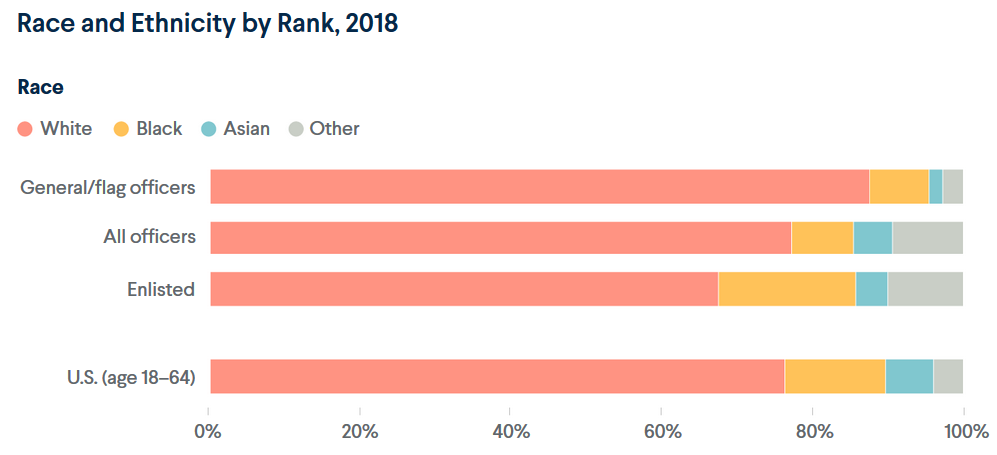Here are 10 reasons why 🇺🇸 military officers should learn about the history of racism & racial discrimination in America.
[THREAD]
[THREAD]
1) Understanding the American Civil War.
Racism, in the form of slavery, was a core reason the war that killed the most American soldiers was fought.
amazon.com/dp/B0044XV6G6/…
Racism, in the form of slavery, was a core reason the war that killed the most American soldiers was fought.
amazon.com/dp/B0044XV6G6/…
Indeed, once ending slavery became a key war aim of the Union, this ensured that the Europeans would not intervene on the side of the Confederacy.
https://twitter.com/ProfPaulPoast/status/1406213940825235462
2) Improving Battlefield Performance.
Improving the diversity and inclusion of a military can enhance cohesion & resiliency, thereby improving battlefield performance. @jaylyall_red5 wrote a whole book on the topic.
amazon.com/dp/B07WGWW3LY/…
Improving the diversity and inclusion of a military can enhance cohesion & resiliency, thereby improving battlefield performance. @jaylyall_red5 wrote a whole book on the topic.
amazon.com/dp/B07WGWW3LY/…
Here is @jaylyall_red5 describing his research to
Joint Special Operations University
Joint Special Operations University
https://twitter.com/jaylyall_red5/status/1358911885421252608
3) Winning Great Power Competition.
America's two major military competitors, 🇷🇺&🇨🇳, have terrible track records on treatment of ethnic minorities. See 👇&...
hrw.org/news/2020/01/1…
America's two major military competitors, 🇷🇺&🇨🇳, have terrible track records on treatment of ethnic minorities. See 👇&...
hrw.org/news/2020/01/1…
...& 👇
cfr.org/backgrounder/c…
cfr.org/backgrounder/c…
This seems like an area where the US could gain "soft power" advantage to complement & enhance the "hard power" provided by the US military.
wilsoncenter.org/publication/so…
wilsoncenter.org/publication/so…
4) Understanding the Cold War's End.
Building on #3, during the Cold War, the US EVENTUALLY sided itself with movements seeking racial equality at home & abroad. @marydudziak's book shows how and why.
amazon.com/dp/B006QNPIAC/…
Building on #3, during the Cold War, the US EVENTUALLY sided itself with movements seeking racial equality at home & abroad. @marydudziak's book shows how and why.
amazon.com/dp/B006QNPIAC/…
Building up legitimacy (i.e. soft power) was a key reason the US was able to "win" the Cold War without direct major military confrontation with the USSR.
amazon.com/Human-Rights-A…
amazon.com/Human-Rights-A…
5) MLK was right.
In his 1968 "Beyond Vietnam" speech, Martin Luther King Jr explained how maintaining domestic support for the military's mission required improving race relations at home.
www2.hawaii.edu/~freeman/cours…
In his 1968 "Beyond Vietnam" speech, Martin Luther King Jr explained how maintaining domestic support for the military's mission required improving race relations at home.
www2.hawaii.edu/~freeman/cours…

6) Improving Recruitment.
The enlisted ranks of the US armed forces are more diverse than the US population as a whole (though this is not the case at the higher ranks).
Source: cfr.org/backgrounder/d…
The enlisted ranks of the US armed forces are more diverse than the US population as a whole (though this is not the case at the higher ranks).
Source: cfr.org/backgrounder/d…

Understanding the reasons for the demographic makeup of the US military seems critical to improving recruitment, as discussed in this @CNASdc report
cnas.org/publications/c…
cnas.org/publications/c…
7) Improve Mobilization.
The US highway system came about in large part over concerns about domestic transportation & evacuation. There is a reason it is now officially called the "Dwight D. Eisenhower National System of Interstate and DEFENSE Highways"
army.mil/article/198095…
The US highway system came about in large part over concerns about domestic transportation & evacuation. There is a reason it is now officially called the "Dwight D. Eisenhower National System of Interstate and DEFENSE Highways"
army.mil/article/198095…
But US highways are not always constructed in the manner optimal for achieving those aims. Too frequently, racially motivated policies led to the suboptimal design of the highways, especially in and around major cities. See @ClaytonNall's book.
amazon.com/Road-Inequalit…
amazon.com/Road-Inequalit…
8) Understanding how NOT to use the military.
During much of the 19th century, the US military was largely used for "imperial policing" against Native American nations. To see how racism both fed into this policy, see @richardmaass book.
amazon.com/dp/B07Z9M9M5R/…
During much of the 19th century, the US military was largely used for "imperial policing" against Native American nations. To see how racism both fed into this policy, see @richardmaass book.
amazon.com/dp/B07Z9M9M5R/…
Such a policy, then and now, is a poor use of the US military. See my piece with @WarInstitute @IrregWarfare
mwi.usma.edu/imperial-polic…
mwi.usma.edu/imperial-polic…
9) Understanding International Politics.
Military "hard" power is a (the) key instrument of international politics. If you are in the military, you should have an understanding of international politics.
Military "hard" power is a (the) key instrument of international politics. If you are in the military, you should have an understanding of international politics.
Well, guess what is a central feature of international politics? Race. An outstanding summation was offered last year in @ForeignPolicy by @kelly_zvobgo & @meredithloken
foreignpolicy.com/2020/06/19/why…
foreignpolicy.com/2020/06/19/why…
As one example, race played a key role in shaping US policy towards entry (or not) in World War I
https://twitter.com/ProfPaulPoast/status/1274678794511626246
10) US military officers are US citizens.
Race has been central to US politics and political development since its founding (I mean, it's right there in the Constitution)
Race has been central to US politics and political development since its founding (I mean, it's right there in the Constitution)

Indeed, racially discriminatory policies are a key reason why scholars question when the US actually became a democracy
https://twitter.com/ProfPaulPoast/status/1347566246733164545
In sum, there are actual war fighting, national security, and good citizenship reasons that US military officers should learn about the role of race in the history and policies of the United States.
[END]
[END]
• • •
Missing some Tweet in this thread? You can try to
force a refresh













